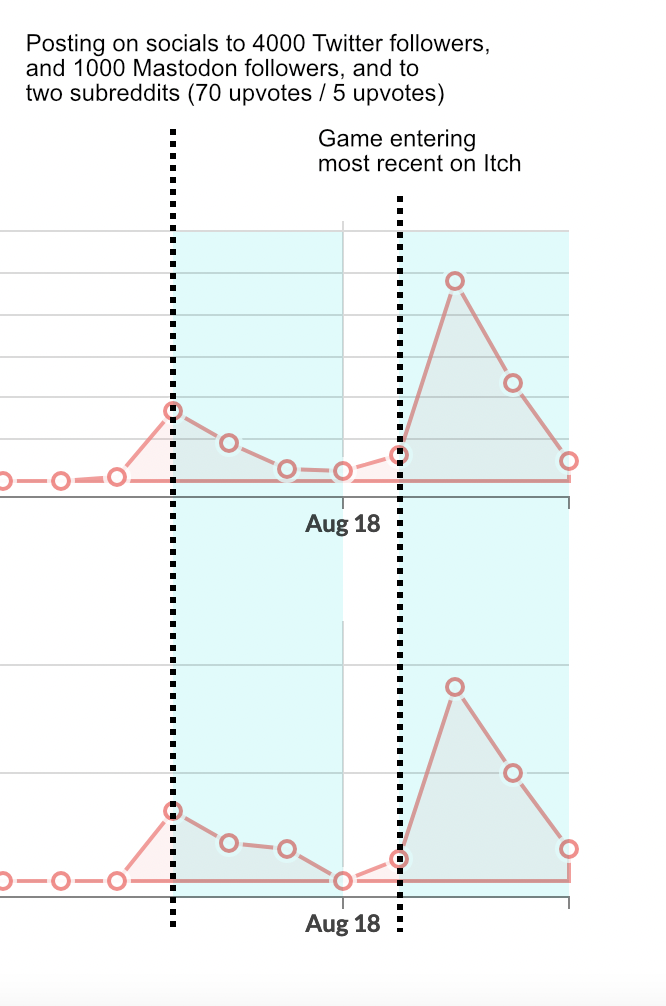There are many circumstances where can’t have “fully automatic” freshness bumps due to abuse.
Giving a game a "bump" at the time it's indexed for the first time is not a "freshness bump" because it's never been on the index at all prior to this point. It's not like it will result in a game being at the top of the Most Recent list once, and then again when it's indexed, because prior to indexing it's not on that list at all. So my suggestion would only result in the game starting at the top of Most Recent once instead of never.
Your page previously wasn’t in any queue to be reviewed since it was marked by you as unavailable up until when you changed its status
Yes and it was also not indexed before for the same reason. Naturally the first time it's available and thus indexed, it should start at the top of Most Recent, not because of manual review or "freshness bump", but simply because it's the most recent entry to be on the Most Recent page (and in the index in general).
If a game is available from the beginning when it's published (and the dev is in good standing due to prior games) then the game automatically starts at the top of the Most Recent page without any review needed, from my understanding. This is because the time of indexing and the time of page creation happens to be the same. Time of page creation works as the "initial time" used for sorting, without any "freshness bumps" having been applied. All I'm saying is that this "initial time" should not be the time of page creation (where the game may not be indexed at all anyway), but rather the time of being included in the index for the first time.
Generally speaking, I do not advise developers to depend on the “Most recent” page for discoverability, as there are many games coming through those pages daily.
Completely off topic argument. I did do external promotion. But the Most Recent and similar lists on Itch exist, and they do have an effect, so there's reason to want them to work in a sensible way rather than in a way that penalizes games that had a page available long before the game itself was indexed. For reference, here's a comparison between my external promotion vs the effect of getting on those Itch lists when you applied the manual bump.

Many developers simply don't have anything at their own disposal that's as powerful as the eyeballs that those lists on Itch provides. So whether you're comfortable with it or not, the exact logic of how those lists work does have a big effect on which games gets seen or not.
Again, I'm not arguing for any "additional exposure", I'm simply arguing for a different time to be the "initial one" that's used without considering any "freshness bumps". And I'm saying that this initial time should obviously be the time a game is included in the Itch index, rather than a point in time that may be long before that.
Hope that helps explain a few things
Unfortunately not, as it seemed to misunderstand my point and did not present any argument for why using time of indexing as the initial time is not superior to using time of page creation as the initial time.

